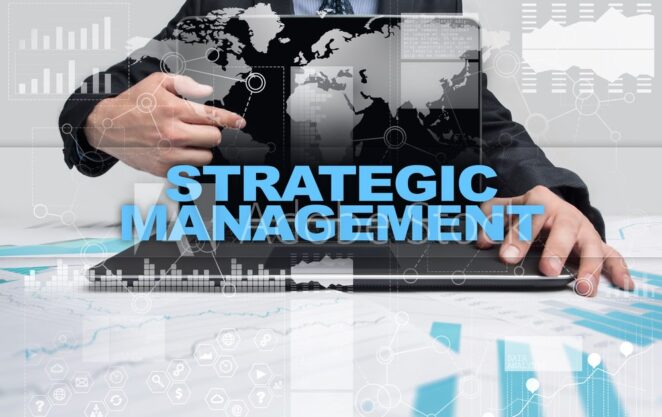In the fiercely competitive hotel industry, driving revenue and ensuring guest satisfaction are paramount for success. Revenue generation fuels growth and profitability, while guest satisfaction builds brand loyalty and encourages repeat business. Hotel management must strike a delicate balance between maximizing revenue and providing exceptional guest experiences. In this blog post, we will explore key strategies for achieving this equilibrium, delving into client preferences, market trends, personalized experiences, effective pricing, technology integration, staff training, social media engagement, physical environment enhancement, partnerships, and continuous improvement through visitor feedback.
Analyzing guest preferences and market trends for better revenue

Understanding guest preferences and staying abreast of market trends is essential for effective hotel management services. Conducting market research, analyzing data, and monitoring guest feedback provides valuable insights into what clients desire and expect. This knowledge empowers hotels to tailor their offerings and experiences accordingly, ensuring a higher likelihood of visitor satisfaction and increased revenue. By identifying emerging trends and adapting to changing preferences, hoteliers can stay ahead of the competition and attract a broader customer base.
Implementing personalized guest experiences for enhanced satisfaction
Guests crave personalized experiences that cater to their unique needs and preferences. Hotel management should invest in understanding visitor profiles, preferences, and special occasions to create tailored experiences. From personalized greetings and room amenities to customized recommendations and special services, these thoughtful gestures make clients feel valued and enhance their overall satisfaction. Embracing technology, such as visitor preference databases and CRM systems, allows hotels to provide a seamless and personalized experience that exceeds visitor expectations, leading to higher client satisfaction and positive word-of-mouth.
Maximizing revenue through effective Pricing and revenue management strategies

Optimizing revenue requires a strategic approach to pricing and revenue management. Dynamic pricing, which adjusts rates based on demand and other factors, helps maximize revenue potential. By analyzing historical data, market demand, and competitor rates, hotels can set optimal prices and capture the maximum value from each room. Additionally, implementing revenue management strategies, such as upselling, cross-selling, and package deals, can increase average client spend. Regularly reviewing pricing strategies and adapting them to market conditions enables hotels to achieve higher revenue while maintaining visitor satisfaction.
Utilizing technology to streamline hotel operations and improve guest experiences
The integration of technology is revolutionizing the hotel industry, enhancing both operational efficiency and visitor experiences. From online booking platforms and mobile check-ins to smart room controls and automated concierge services, technology simplifies processes and increases convenience for visitors. Efficient property management systems and analytics tools enable real-time monitoring of hotel performance and client satisfaction metrics, allowing management to make data-driven decisions. Embracing technology not only streamlines operations but also improves client experiences by providing convenience, personalization, and instant access to information and services.
Effective staff training and development for superior guest service

Well-trained and motivated staff are the backbones of excellent guest service. Hotel management should prioritize comprehensive training programs that equip employees with the skills and knowledge to provide exceptional service. Training should focus on interpersonal skills, problem-solving, conflict resolution, and cultural sensitivity. Regular refresher courses and ongoing professional development opportunities help employees stay updated and motivated. Empowering staff to take ownership of client experiences fosters a culture of exceptional service, resulting in higher visitor satisfaction, positive reviews, and repeat business.
Leveraging social media and online platforms for increased revenue and guest engagement
In today’s digital age, social media and online platforms are powerful tools for hotels to engage with guests and drive revenue. A strong social media presence allows hotels to showcase their offerings, share client experiences, and respond to feedback. Targeted online advertising campaigns can reach potential clients, generate leads, and increase bookings. Influencer collaborations and user-generated content encourage brand advocacy and attract new customers. Engaging with visitors through social media platforms fosters a sense of community and allows for personalized communication, ultimately enhancing client satisfaction and driving revenue.
Enhancing the hotel’s physical environment and amenities to attract guests

The physical environment plays a vital role in visitor satisfaction and revenue generation. Hotels should invest in creating appealing and comfortable spaces that reflect their brand identity. Thoughtful interior design, high-quality furnishings, and attention to detail elevate the overall visitor experience. Offering a range of amenities, such as fitness centers, spas, business centers, and recreational facilities, adds value and attracts a diverse clientele. Regular maintenance and upgrades ensure that facilities remain in excellent condition, leaving a lasting positive impression on visitors and encouraging return visits.
Building strong partnerships and collaborations to drive revenue and guest satisfaction
Collaborating with local businesses, travel agencies, event planners, and tourist attractions can drive revenue and enhance visitor satisfaction. Partnerships can offer exclusive deals, create value-added packages, and expand marketing reach. Joint promotions and cross-marketing initiatives expose the hotel to new audiences and attract clients who may not have discovered it otherwise. Furthermore, collaborating with reputable organizations and service providers builds trust and credibility, reassuring visitors of the hotel’s commitment to quality and client satisfaction.
Monitoring guest feedback and reviews for continuous improvement

Regularly monitoring guest feedback and reviews is crucial for identifying areas of improvement and ensuring continuous enhancement of visitor experiences. Hotels should actively encourage clients to provide feedback through post-stay surveys, online review platforms, and direct communication channels. Analyzing this feedback helps identify patterns, address shortcomings, and implement necessary changes. Promptly responding to visitor concerns and resolving issues demonstrates a commitment to guest satisfaction. By actively listening to clients and incorporating their feedback, hotels can continually refine their offerings and elevate the visitor experience, leading to increased revenue and customer loyalty.
Conclusion: Key takeaways for driving revenue and guest satisfaction in hotel management
Driving revenue and guest satisfaction in hotel management requires a multifaceted approach that encompasses various strategies. By analyzing guest preferences, implementing personalized experiences, employing effective pricing and revenue management techniques, leveraging technology, investing in staff training, utilizing social media, enhancing physical environments, building partnerships, and monitoring guest feedback, hotels can optimize revenue while delivering exceptional guest experiences. Embracing these key takeaways will position hotels for success in an increasingly competitive industry, where revenue and guest satisfaction are intertwined and essential for long-term growth and profitability.




